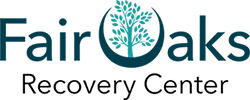The American Lung Association (ALA) indicates there are more than 600 ingredients in cigarettes alone that, when burned, “create more than 7,000 chemicals.” While you may be well aware smoking isn’t healthy, it’s still a challenging habit to break, especially while you’re in addiction treatment. But does smoking help or hurt your recovery?
Why Do People Smoke?
The Centers for Disease Control and Prevention (CDC) noted in 2023 that approximately 28 million people in the U.S. smoke. Interestingly, there’s some science behind this behavior.
- The American Cancer Society (ACA) reports that most people start using tobacco products as teens, especially if their friends are doing it or they see it in media and video games. Now, because e-cigarette devices are so prevalent and considered harmless, even more young adults try smoking by the time they’re in high school, and approximately 9 out of 10 continue the habit as older adults—because nicotine is addictive and affects everyone.
- The Mental Health Foundation (MHF) indicates that many people smoke because they believe it relieves stress—but this isn’t exactly true. “When a person smokes, nicotine reaches the brain within about ten seconds. At first, nicotine improves mood and concentration, decreases anger and stress, relaxes muscles and reduces appetite,” the organization states. However, these feelings are temporary and soon give way to withdrawal symptoms and increased cravings—thus actually increasing anxiety and tension. “Smoking reduces withdrawal symptoms but doesn’t reduce anxiety or deal with the reasons someone may feel that way,” MHF adds.
- According to The NHS, adults with depression and other dual diagnosis disorders are much more likely to smoke than those without mental health issues. “When people stop smoking, studies show that anxiety, depression and stress levels are lower, quality of life and positive mood improve, and the dosage of some medicines used to treat mental health problems can be reduced.”
The ACA also reinforces the aspect of nicotine addiction. “As the body adapts to nicotine, people who use it tend to increase the amount of tobacco they use. This raises the amount of nicotine in their blood, and more tobacco is needed to get the same effect. This is called tolerance. Over time, a certain nicotine level is reached and the person will need to keep up the usage to keep the level of nicotine within a comfortable range.”
And, quite simply, some people find smoking enjoyable. Combined with all the above factors, this makes smoking even more difficult to stop, especially during addiction rehabilitation treatment and early recovery.
So Does Smoking Help or Hurt Your Recovery?
While many inpatient addiction rehabilitation centers allow residents to smoke, it’s generally not advisable to continue smoking during treatment and recovery, especially if your wellness goal is to address substance use disorder (SUD) or alcohol use disorder (AUD) and overall chemical dependency.
The National Institute on Drug Abuse confirms nicotine is addictive, and here are some reasons why, which we provide verbatim.
- The pharmacokinetic properties of nicotine (the way it’s processed by the body), contribute to its addictiveness. When cigarette smoke enters the lungs, nicotine is absorbed rapidly in the blood and delivered quickly to the brain, so that nicotine levels peak within 10 seconds of inhalation.
- However, the acute effects of nicotine also dissipate quickly, along with the associated feelings of reward; this rapid cycle causes the smoker to continue dosing to maintain the drug’s pleasurable effects and prevent withdrawal symptoms.
- Nicotine increases levels of the neurotransmitter dopamine in these reward circuits, which reinforces the behavior of taking the drug.
- Repeated exposure alters these circuits’ sensitivity to dopamine and leads to changes in other brain circuits involved in learning, stress, and self-control.
Additionally, remember: 7,000 chemicals are being introduced into your system with every puff. Plus “nicotine, including nicotine salt, is listed by the Environmental Protection Agency as an acute hazardous waste,” according to the U.S. Food and Drug Administration. So if your overall intention is to become healthier and reduce compulsive chemical dependency, it’s likely in your best interest to stop smoking.
Tips for Quitting Smoking
To be fair, it’s not easy to change every behavior for the better right away—and all at once. While you’re focused on addiction recovery, quitting smoking might be another hurdle that you simply don’t want to face. So the Mayo Clinic offers a few tips:
- Delay gratification. When you feel compelled to smoke, curb the habit by waiting 10 minutes, and distract yourself in the meantime, such as going to a no-smoking area. There’s a similar technique used in addiction rehabilitation, urge surfing, designed to help you recognize the reason for your cravings.
- Avoid triggers. Become aware of the thoughts, feelings, or situations that trigger your desire for a smoke break, and start taking steps to address or avoid those triggers.
- Get physical. “Even short bursts of activity—such as running up and down the stairs a few times—can make a tobacco craving go away. Get out for a walk or jog,” Mayo states.
- Try relaxation techniques. As we pointed out above, smoking adds to your stress, so choose meditation, mindfulness, and other calming methods when you’re feeling anxious.
- Get professional help. According to Mayo, “short-acting nicotine replacement therapies— such as nicotine gum, lozenges, nasal sprays or inhalers—can help you overcome intense cravings. These short-acting therapies are usually safe to use along with long-acting nicotine patches or one of the non-nicotine stop-smoking drugs.”
You can also work with your addiction treatment counselors on various ways to “habit stack” your progress, gradually using various smoking cessation techniques as you move into recovery.
Fair Oaks: Focused on Your Health
Fair Oaks Recovery Center in Sacramento, California, is a licensed Chemical Dependency Recovery Hospital, a status granted by the California Department of Public Health to addiction rehabilitation and dual diagnosis treatment facilities that provide high-level acuity care. The goal of our whole-person care approach is to treat the mind, body, and spirit. Our board-certified medical team meets you where you are at this moment and provides the resources you need to plan a better, healthier future.



